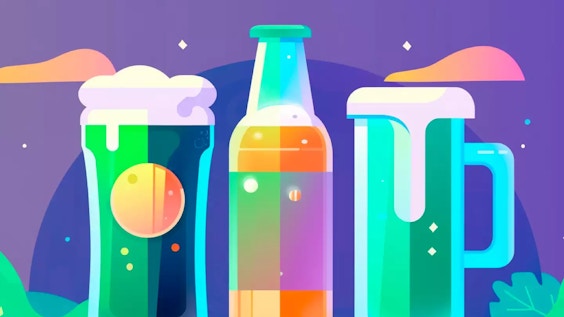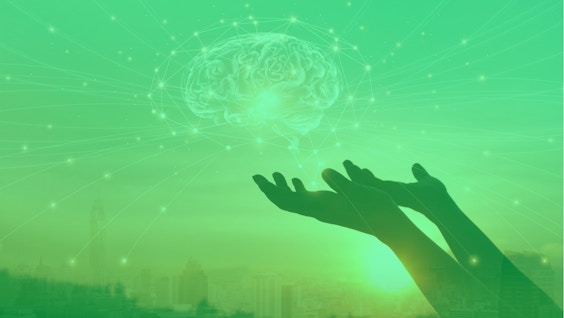I Am Sober is a free app that helps you get some control back in your life.

Am I An Alcoholic?
Last Updated: Tue, January 23, 2024"As soon as you have to cut down on your drinking, you have a drinking problem."
While it’s a good quote, it’s not necessarily fair. You can be a problem drinker and not suffer from alcohol use disorder. However, asking yourself, 'am I an alcoholic?' is a reasonable way to start a dialogue with yourself about your drinking.
The next step is figuring out if you have a drinking problem or you have an addiction. Both need to be dealt with, but the steps you take are different for each one.
A Problem Drinker
If you’re someone who consumes 4-5 drinks (4+ for women; 5+ for men) over the course of two hours, then this is considered a ‘drinking binge.’ This is fairly common with one out of every six adults in America claiming to have had a drinking binge once a week or four times a month.
While binge-drinking is problematic – and sometimes lethal – it’s typically not indicative of an addiction or dependency on the substance. Binge drinkers tend to be male and tend to be between the ages of 18-34, but they do not have a dependency.
A dependency on alcohol is best defined by the substance’s absence. Someone who is dependent feels incomplete or ‘in pain’ without it. Even then, dependency does not inherently mean a person has an addiction, only that they suffer from dependence. Alcohol addiction usually follows, but that’s not always the case.
For drinkers who do not suffer from dependence (i.e. anxiety without alcohol or any of the myriad withdrawal symptoms), the issue appears to be one of alcohol abuse rather than a disorder or addiction.
Alcohol Dependence
Alcohol dependent is typically a physiological response to the substance. Without it, a person is unable to function, attend meetings, go to work, or social events without alcohol. Although for many people, this develops into an addiction, this is not always the case. People who suffer from alcohol dependence seek to feel ‘normal’ not necessarily escape or feel numb.
Alcohol dependence is a matter of not being able to function without alcohol. The reason this differs from addiction – and even problem drinkers – is this usually doesn’t mean excessive drinking on a weekly basis or an inability to stop drinking. What it means is, you need it to get through the day, the way many people need a cup of coffee or they suffer a headache or simply can’t stay alert.
There have been many prominent figures who have expressed their relationship with alcohol as being one of dependence as opposed to an addiction.
For addicts, it’s almost impossible to have just one drink or to achieve that feeling of being normal. People who suffer from alcohol use disorder have had their rewards system in their brain rewired so that alcohol is translated as a need as critical to their health as water.
This is why people who suffer from addiction have a tendency to lash out and often leave a trail of chaos in their wake. It’s difficult to have a rational conversation with someone who feels as though they’re dying of thirst and hunger.
Am I An Alcoholic?
The stress test for alcoholism is to remain sober for 24 hours and see how you feel. People who are addicted experience withdrawal symptoms as early as six hours after their last drink.
People who are dependent may experience withdrawal-like symptoms but perhaps not the overwhelming cravings someone with alcohol use disorder (AUD) is having. Someone who semi-regularly binge drinks may be suffering from a hangover, but have no strong desire for the substance.
As a cautionary reminder, going 24 hours without alcohol does not mean you don’t suffer from an addiction. There are many addicts who have completed lengthy stretches of sobriety to convince themselves they don’t have a problem.
A factor to always consider is how that time is spent. For many addicts, it’s an all-consuming thought of when they can drink again. That’s when you know it’s a rewiring of the brain.
Otherwise, here are a handful of questions to help you determine if you’re an alcoholic.
-
Do you want to cut back on how much you're drinking, but can't stop?
-
Do you drink alcohol despite negative consequences?
-
Do you drink more and for longer than intended?
-
Do you consistently have cravings for alcohol?
-
Do you organize your schedule around when you can drink (often sacrificing hobbies or time with loved ones)?
Answering yes to any of these is indicative of alcoholism (or AUD). Fortunately, there are steps you can take to get and stay sober.
Treatment for Alcoholism
For many people, attending rehab is where they start to be treated for alcohol use disorder. Rehab can help lessen the effects of alcohol withdrawal, thereby making you less prone to relapse in the early days of sobriety. That said, there are plenty of people who 'white-knuckle' their way to sobriety.
From there, it's often recommended that alcoholics attend meetings or therapy to discuss the underlying issue that caused their drinking. For many people it's pain that they try to numb with alcohol and that pain needs to be addressed rather than ignored.
Above all, it's important that once you make the commitment to get sober, you stay sober.
I Am Sober is a free app that helps you get some control back in your life.




